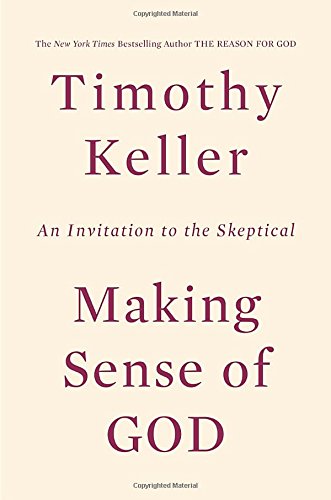A Brief Book Summary from Books At a Glance
About the Author
Tim Keller is a pastor, speaker, and author. He has written numerous books and is a very influential leader in evangelicalism.
Introduction
Making Sense of God provides reasons for exploring the truth claims of Christianity. Many people today do not see faith as a live option, so they are unwilling to spend time examining the evidence for the existence of God and the truth of Christianity. This book seeks to demonstrate to skeptics that secularism is based on unprovable assumptions and that secularism cannot account for some of the most basic and important human realities. Secularism and Christianity are compared and contrasted. Given the fact that secularism fails to explain many features of reality and experience—and the fact that Christianity is able to offer cogent and coherent explanations—it makes sense to take a good look at the evidence for the Christian faith.
Table of Contents
Preface: The Faith of the Secular
Chapter 1 Isn’t Religion Going Away?
Chapter 2 Isn’t Religion Based on Faith and Secularism on Evidence?
Chapter 3 A Meaning That Suffering Can’t Take from You
Chapter 4 A Satisfaction That Is Not Based on Circumstances
Chapter 5 Why Can’t I Be Free to Live as I See Fit, as Long as I Don’t Harm Anyone?
Chapter 6 The Problem of the Self
Chapter 7 An Identity That Doesn’t Crush You or Exclude Others
Chapter 8 A Hope That Can Face Anything
Chapter 9 The Problem of Morals
Chapter 10 A Justice That Does Not Create New Oppressors
Chapter 11 Is It Reasonable to Believe in God?
Chapter 12 Is It Reasonable to Believe in Christianity?
Epilogue: Only in God
Summary
Chapter 1: Isn’t Religion Going Away?
Despite the proclamations of many secularists, studies project that a higher percentage of the world’s population will be religious in the future than is currently the case. This phenomenon is not because of lack of education or technology around the world. Some at the highest levels of education are seeing that a materialistic naturalism simply cannot account for basic human realities. The last century saw many horrible atrocities committed by secular states and ideologies. Science and materialism cannot account for morality and human value, nor are love and other virtues logically compatible with a secular worldview. Not only are people discovering that atheistic worldviews are lacking in explanatory power, human beings have an inherent sense that there is something more than just this life and world. This sensation of being in touch with the transcendent can sometimes come through the beauty of the arts or nature, and such experiences cannot be reduced to genetics and evolutionary survival adaptations. There are also experiences of fullness and love and joy and meaning that cannot be explained away. Besides experiences of beauty, peace, or harmony, there are also moments of feeling a holy terror, wildness, or smallness in the face of something transcendent. Such things do not just happen to believers; many atheists describe similar moments. People do not believe in God because of an emotional need—they believe in God because it makes the most sense of their experience. The sociological reality is that the widespread movement of cultures into modernism has not stemmed the growth of religion. The growth of those in the USA who identify with no religion are coming from liberal Christian traditions; overall, the percentage of secularists is projected to shrink. Liberal churches are dying while conservative evangelical churches are growing. These are not claims put forward by affiliates of conservative religious groups—these trends have been identified by many trained secularists who study the data and conclude that the future world will be more religious than it is now. Religion is definitely not going away anytime soon.
Chapter 2: Isn’t Religion Based on Faith and Secularism on Evidence?
Many “deconversion” stories where a believer in God becomes an atheist proclaim that when God is subtracted, the secular, atheistic view is obviously true. Secularism is based on reason and evidence and religion is based on blind faith. Yet this narrative overlooks the fact that secularism is grounded in non-evidential faith commitments. Secularists seem to assume that only science is rational and that only scientific statements are epistemologically justified, but this view breaks down very quickly—it fails to pass its own standard. Science works with natural cause and effect relations, and so by its very nature it cannot prove or disprove the existence of God. People used to be comfortable acknowledging a God beyond their reason, but today people have exalted their reason and believe that if God and his ways don’t make sense to them, God can’t be real. . ..
[To continue reading this summary, please see below....]The remainder of this article is premium content. Become a member to continue reading.
Already have an account? Sign In
